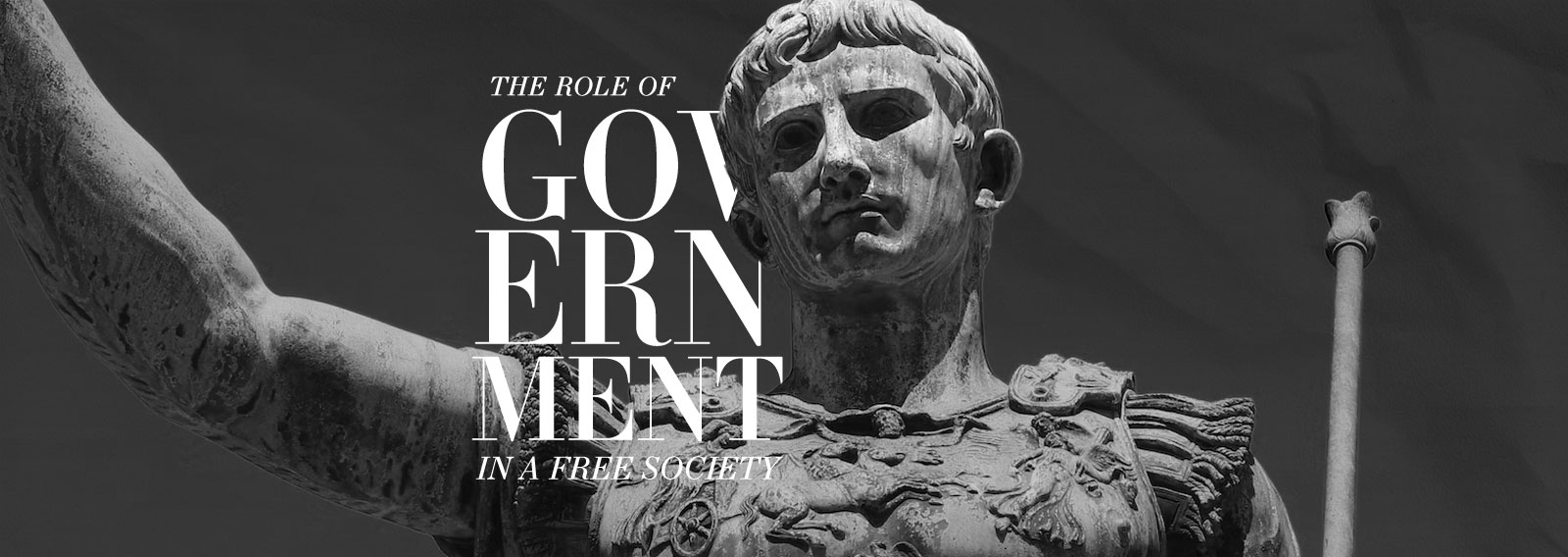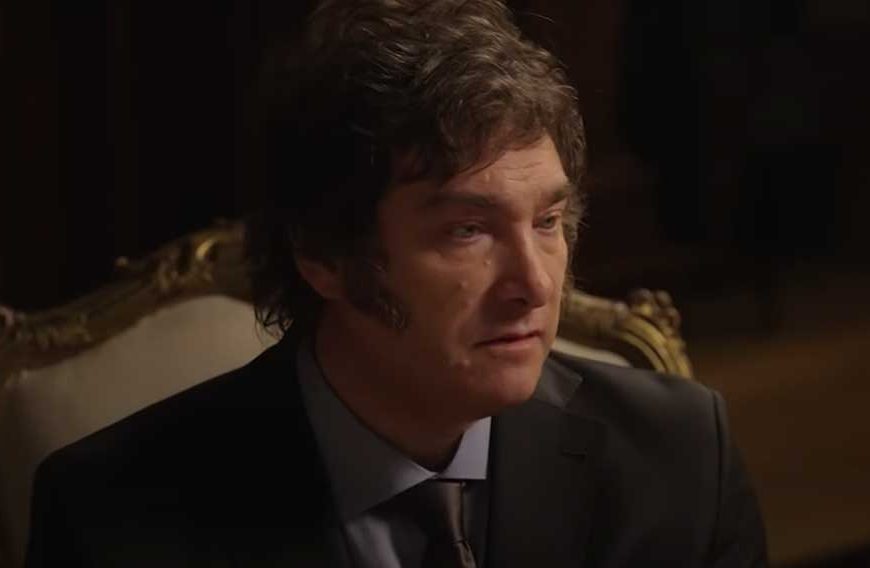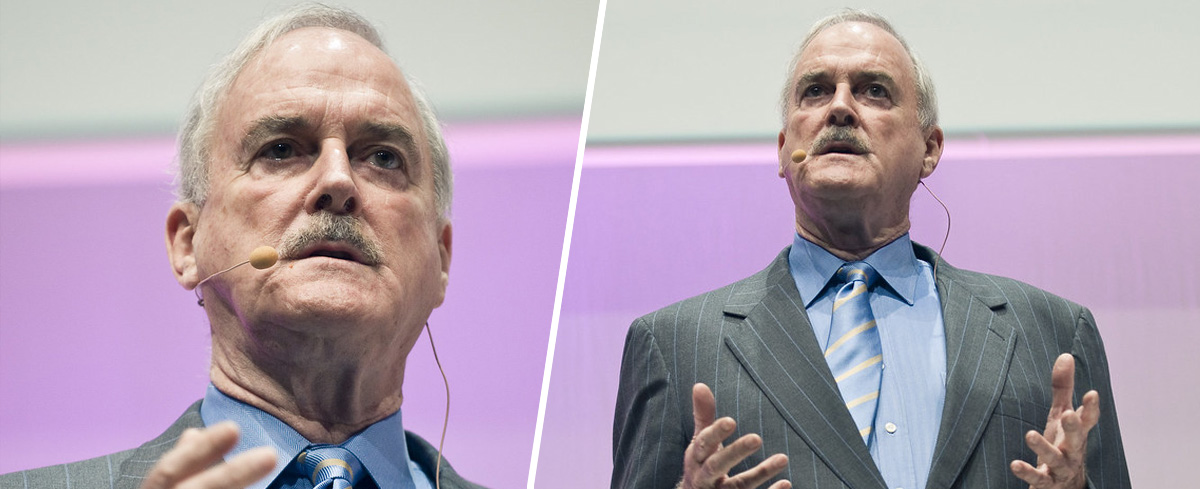Aldous Huxley, in a 1946 preface to Brave New World (1932), described the reality of a people of slaves who would effectively love their enslavement: ‘A really efficient totalitarian state would be one in which the all-powerful executive of political bosses and their army of managers control a population of slaves who do not have to be coerced because they love their servitude’, he wrote.
Unknowingly, Australians have accepted the role of Huxley’s servant-minded people. As a consequence, we have become a nation of slave-like people with elected politicians acting more as masters than elected servants of the people. Indeed, far too many Australians love comfort and have a blind faith in their public authorities. They expect almost everything to come from the government. They effectively worship at the altar of the “Almighty State”.
However, the abuse of government through the arm of the State is not an uncommon occurrence in human history. And yet, many Australians are hopelessly ignorant of this undeniable historical truth. They remain blissfully ignorant of the fact that totalitarianism often emerges as a gradual process towards the consolidation of power and control, which can spread without much of the populace first noticing it and taking hold before it is too late.
In this sense, the rise of totalitarianism is often initiated by means of government misinformation which are ultimately aimed to engender “scientifically proven” measures of control over the population. In The Origins of Totalitarianism (1951), Hannah Arendt, one of the leading political theorists of the 20th century, describes in considerable detail how, to obtain absolute control over society, ‘gigantic lies and monstrous falsehoods can eventually be established as unquestioned facts’.
The physiological concept of ‘mass formation’ assists us in the understanding of this peculiar social phenomenon. Mass formation has been described as ‘a kind of broad scale hypnosis that causes large groups of people to band together to fight a common enemy with complete lack of concern for the loss of individual rights, privileges, and even personal well-being.’ Dr Mattias Desmet, a professor of clinical psychology at Belgium’s Ghent University, explains that the response to the Covid crisis provides a compelling example of ‘mass formation’ taking place. It leads to ‘a kind of mental intoxication of connectedness, which is the real reason why people continue to buy into the narrative, even if it’s utterly absurd or blatantly wrong’, he says.
Governments should only exercise limited responsibilities. They are expected to accomplish only limited tasks and their primary role is the protection of the innocent by punishing of the guilty according to law. ‘For Government’, writes the Apostle Paul,
‘… is God’s servant working for your good. But if you do what is wrong, you should be afraid. The government does not bear the sword for no reason. It is God’s servant, an avenger to execute God’s anger on anyone who does what is wrong’ (Romans 13:1–4).
Above all, governments should adhere to the following principle: ‘Let all things be done decently and in order’ (1 Corinthians 14:40). As long as government does what it is right, we must obey its rules. The Apostle Peter declared:
‘Submit you for the Lord’s sake to every authority instituted among men, whether to the king, as the supreme authority, or to governors, who are sent by him to punish those who do wrong and to commend those who do right’. (1 Peter 2:13–14)
However, power corrupts, and, as Lord Acton put it, ‘absolute power tends to corrupts absolutely’. Therefore, a government that disperses power provides more freedom than one that gathers power into the hands of a few. This is why a rigid division of powers into separated and independent branches of government—executive, legislative, and judicial—, works as an important protection against abuse of power. Each branch must wield specific power so that concentration of power, which is always inimical of freedom, can be prevented.
To restrain the abuse of power, wrote Montesquieu, ‘it is necessary from the disposition of things that power should be a check to power’. ‘There is no liberty if the judiciary power be not separate from the legislative and executive’, he said. However, as Montesquieu also pointed out: ‘When the legislative and executive powers are united in the same person, or in the same body of magistrates, there can be no liberty; because apprehensions may arise, lest the same monarch or senate should enact tyrannical laws, to execute them in a tyrannical manner’. This doctrine of separation of powers reflects the Trinitarian nature of God, which is patterned after Isaiah 33:22: ‘For the Lord is our Judge, the Lord is our Lawgiver, the Lord is our King.’
In The Spirit of Laws, Montesquieu provides the reasons as to why ‘the mildness so frequently recommended in the Gospels, is incompatible with despotic rage with which a prince punishes his subjects, and exercises himself in cruelty’. Thus the French philosopher concluded: ‘We owe to Christianity, in government a certain political law, and in war a certain law of nations, benefits which human nature can never sufficiently acknowledge’.[1]
According to David Barton,
This separation of powers theory is rooted in the Biblical concept espoused in Jeremiah 17:9 that man naturally tends toward corruption. Following the religious teaching of the day, it was generally accepted that the unrestrained heart of man moved toward moral and civil degradation… Thus it was logical that society would be much safer if all power did not repose in the same authority. With the power divided, if one branch became wicked, the others might still remain righteous and thus be able to check the wayward influence.
The Biblical Source of Fundamental Rights
Since the biblical worldview perceives humans as being created in the image of God (Genesis 1:26), we are all considered incredibly valuable in God’s sight. This is made clear when one considers that Jesus Christ took upon Himself human flesh and died on the cross for all humanity. This understanding is reflected in the opening statement of the American Declaration of Independence: ‘All men are created equal […] [and] endowed by their Creator with certain unalienable rights.’ The assumptions inherent in this Declaration are:
1) we were created by a benevolent God in his image and likeness; and
2) this Creator provides the foundation for all human rights.
The knowledge that our basic rights rest on an eternal source is crucial to our understanding of government. Christians must regard their basic rights as not originating from government, but God Himself. And what God gives let no government take away!
So, if God ordains government to secure the protection of our inalienable rights, then such rights cannot be arbitrarily assigned according to the whims of government – otherwise, these rights would be ‘alienable’ and not ‘inalienable’.
This biblical truth was advocated by John Adams, one of the American Founders, in a letter to Thomas Jefferson, in 1813:
The general principles, on which the Fathers achieved Independence, were the only Principles in which that beautiful Assembly of young Gentlemen could unite … And what were these general Principles? I answer, the general Principles of Christianity, in which all these Sects were united … Now I will avow, that I then believe, and now believe, that those general Principles of Christianity, are as eternal and immutable, as the Existence and Attributes of God.
The Role of Government According to Scripture
Since humans are capable of both vice and virtue, governments are created to keep their evil inclinations at bay. Government must protect the innocent from all sorts of evil—rapists, murderers, child molesters, thieves, sex traffickers, etc.
The legitimacy of government therefore lies on its level of protection afforded to our inalienable rights. Considering that such rights are inalienable, George Washington, in his First Inaugural Address as the first US President, referred to ‘the propitious smiles of Heaven which fall on the nation which does not disregard the eternal rules of order and right which Heaven itself has ordained.’
Governments have only limited responsibilities. Trusting too much in government always results in political tyranny. Socialism, in all its variants, is always tyrannical because it concentrates too much power in the hands of a few. Today, global oligarchs talk about the need for global government. If they prevail in their attempt to create their ‘new world order’ humanity will experience what the Book of Revelation describes as the coming of the Anti-Christ (Revelation, Ch 13).
In contrast to dangerous socialist teachings, Scripture advocates a political philosophy of individual liberty and limited government. The truth of the Gospels was a ‘working premise’ in John Locke’s political writings. This can be particularly observed in his comments on property, family, slavery, limited government, and toleration.
Locke’s political writings played an important role in the development of constitutional government. Indeed, they provided moral, political and legal justification for the 1688 UK Glorious Revolution and the American Declaration of Independence.
In his Second Treatise, Locke comments that our rights to life, liberty and property are independent of, and antecedent to, the State. As such, no government has any other end apart from the preservation of our natural rights, and, therefore, ‘can never have a right to destroy, enslave, or designedly to impoverish the subjects.’
Being God-given and inalienable, these natural rights of the individual cannot be curtailed because they set limits on the action of government, thus providing lawful justification for civil resistance were these rights to be violated. To the extent that government fails to protect these rights, such government ceases to have legitimacy and we can lawfully dismiss it for a breach of trust. As Locke famously put it,
Whenever the legislators endeavour to take away and destroy the property of the people [that is, their rights to life, liberty and property], or to reduce them to slavery under arbitrary power, they put themselves into a state of war with the people, who are thereupon absolved from any further obedience, and are left to the common refuge which God hath provided for all men against force and violence.
A Question of Obedience
We have a moral obligation to participate in a legitimate government (Romans 13:1–2). However, our duty to obey government does not require that we stray from certain lawful responsibilities. We must hold authorities accountable by voting, petitioning, and even running for political office, or serving in non-elected positions where we can influence power (Proverbs 29:2).
Above all, we are required to first obey God and not human authorities. When the apostles Peter and John were ordered by the Sanhedrin to stop preaching the Gospels, they stated: ‘Judge for yourselves whether it is right in God’s sight to obey man rather than God’ (Acts 4:19).
‘The bottom line, is that at a certain point, there is not only the right, but the duty, to disobey the State,’ said Francis Schaeffer. That being so, St Ambrose (c 337–397) once stated that ‘a conscientious man must sooner die than obey a command which he knows is wrong’. He knew that his ultimate loyalty was to God and not human authority.
Our disobedience, indeed, may result in death or imprisonment but God always honours those who demonstrate this level of commitment. Daniel understood this and chose death over worshiping a tyrannical ruler (Daniel 6:7–10).
Naturally, the involvement of the righteous can much influence government for the better. Charles Colson once commented: ‘Christians are to do their duty as best they can. But even when they feel they are making no difference, that they are failing to bring Christian values to the public arena, success is not the criteria. Faithfulness is.’
Above all, we must remain faithful to God (and to His ‘Law of Liberty’) under all circumstances. In one of his letters the apostle Paul counsels all the believers to ‘stand fast therefore in the liberty wherewith Christ hath made us free’ (Galatians 5:1).
Concluding Remarks
According to Scripture, ‘the law of the Lord is perfect, reviving the soul’ (Psalms 19:7). This law of God is also described as ‘the perfect law of liberty’ (James 1:25). After all, “it is for freedom that Christ has set us free. Stand firm, then, and do not let yourselves be burdened again by a yoke of slavery” (Galatians 5:1).
Based on these profoundly liberating biblical teachings, Sir John Fortescue (1394-1476), a chief justice of the King’s Bench, famously declared:
A law is necessarily adjudged cruel if it increases servitude and diminishes freedom, for which human nature always craves. For servitude was introduced by men for vicious purposes. But freedom was instilled into human nature by God. Hence freedom taken away from men always desires to return, as is always the case when natural freedom is denied. So he who does not favour freedom is to be deemed impious and cruel.
The Bible contains numerous other passages that demonstrate God’s support to lawful resistance against tyranny. They can be found in such passages as Exodus 1:17–21, Esther 3:2 and 4:13–16, Daniel 3:16–18, and Acts 5:29. These and numerous other passages in Scripture motivated Origen (c 185–254), an early Christian theologian, to conclude:
Where the law of nature, that is of God, enjoins precepts contradictory to the written laws, consider whether reason does not compel a man to dismiss the written code and the intention of the lawgivers, and to devote himself to the divine Lawgiver and to choose to live according to His word, even if in doing this he must endure dangers and countless troubles and death and shame.
The American Founder Thomas Jefferson (1743-1826) once argued rhetorically: ‘Can the liberties of a nation be thought secure when we have removed their only firm basis, a conviction in the minds of the people that these liberties are the gift of God?’ Jeffrie G. Murphie, a well-known American legal philosopher, provides this perfect answer to Jefferson’s rhetorical question:
The rich moral doctrine of the sacredness, the preciousness, the dignity of persons cannot in fact be utterly detached from the theological context in which it arose and of which it for so long formed an essential part. Values come to us trailing their historical past; and when we attempt to cut all links to that past we risk cutting the life lines on which those values essentially depend. I think that this happens in… any attempt to retain all Christian moral values within a totally secular framework. Thus ‘All men are created equal and are endowed by their Creator with certain unalienable rights’ may be a sentence we must accept in an all or nothing fashion – not one where we can simply carve out what we like and junk the rest.
Of course, protection against tyranny cannot, in the long run, be sustained without the higher standards of justice and morality brought into the texture of Western societies by Christianity.[2] This opinion actually comes from William Aylott Orton, author of ‘The Liberal Tradition’ (Yale University Press, 1945). On page 57 of this excellent book, Orton comments:
The fundamental values of the liberal tradition were in fact exemplified, formulated, and wrought into the texture of Western society by Christianity, not only as a school of thought but as a way of life and feeling: as a religion, in short. It is not safe to assume that the Christian ethos will persist while the faith and doctrine that gave birth are being deliberately abandoned. The logic of thought, the evidence of history, and the testimony of current events are all opposed to that assumption.
Conservatives would be mistaken to believe that we should aspire only for the restoration of the past. God wants us to more profoundly transform the entire world through us. He wants believers to be the world’s great revolutionaries!
Only God alone is truly sovereign. He can and will judge Australia if Australians don’t stand up. I am tired of Australian Christians that justify being uninvolved in the culture war because they claim simply to be ‘trusting God’. Apathy is not trust. It is sin. As James 4:17 points out: ‘For the person who knows to do good and doesn’t do it, it is a sin’.
The price of liberty is eternal vigilance. We therefore should bring back the revolutionary spirit of 1776. On a warm 4 July 1776, in Philadelphia, fifty-six brave men signed their names to the American Declaration of Independence, stating: “With a firm reliance on the protection of Divine Providence, we mutually pledge to each other our lives, our fortunes, and our sacred honour”.
Will we be able to say the same of ourselves? Will our honour stand, or will our children and grandchildren ask why we did not follow that same example? Or will they wonder why, in our timidity, we allowed so much evil and tyranny to ultimately prevail in Australia?
So, my fellow Australians, it’s time to resist! It’s time to show to the whole world that we are not a nation of slaves but a nation of free citizens. To paraphrase the Preamble of the Australian Constitution, we must ‘rely on the blessings of the Almighty God’ and fight to the very end for the full restoration of our inalienable rights and freedoms. ‘For these gifts of God are irrevocable’ and they cannot be taken away by the government. (Romans 11:29).
Paper presented at ‘Hope in Times of Fear’, an event organised by the Australian Peacemakers in partnership with WALTA Legal Theory Association, and held on 21 October 2023 at the Irish Club Subiaco, in Western Australia.
[1] Charles Louis de Secondat, Baron de Montesquieu, The Spirit of Laws[ 1750]Bk XXIV, Ch. 3.
[2] William Aylott Orton,The Liberal Tradition: A Study of the Social and Spiritual Conditions of Freedom (new Haven/CT: Yale University Press, 1945) p.57



















